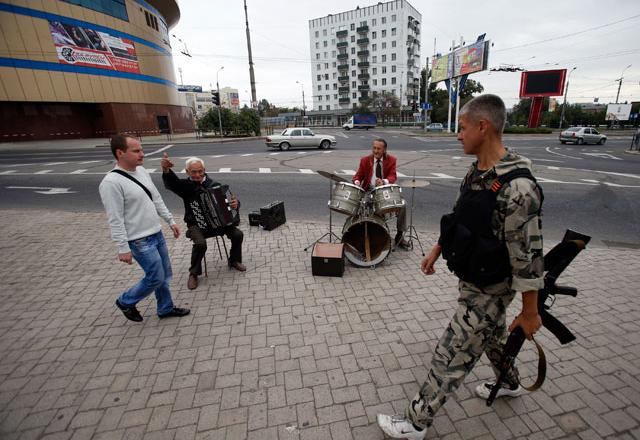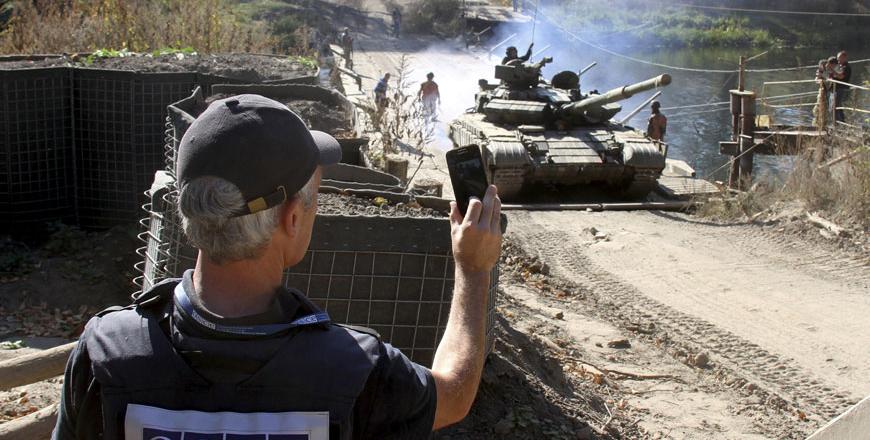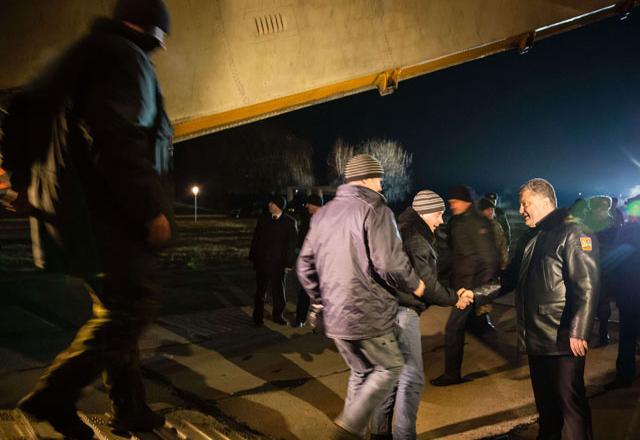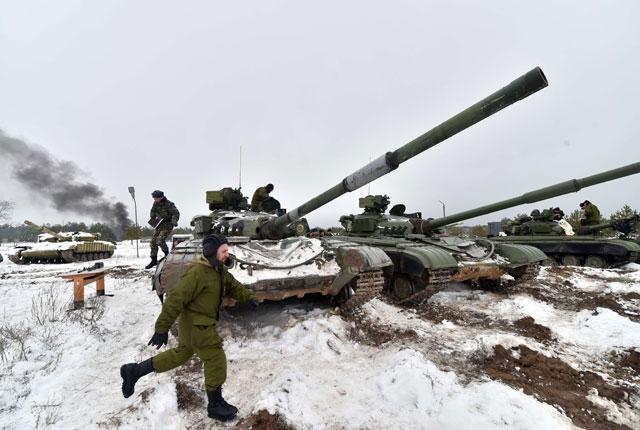You are here
Ukraine prepares pullback as truce holds
By AFP - Sep 22,2014 - Last updated at Sep 22,2014

KIEV — The Ukrainian military said Monday it was preparing to pull back its guns from the frontline in the separatist east as a fragile truce with pro-Russian insurgents appeared to be taking hold.
Rebel leaders also said they were ready to give peace a chance after five months of bloodletting that set off the most serious East-West crisis since the Cold War.
Across the rebel-held regions of Donetsk and Lugansk, the level of violence appears to have subsided although Kiev said it lost two soldiers in overnight raids by "armed gangs".
The deaths bring to 39 the number of Ukrainian troops and civilians killed since the warring sides signed a September 5 truce that NATO's top military commander warned at the weekend was holding "in name only".
But hopes of peace gathered pace after the ceasefire was reinforced Saturday by another deal signed in Minsk calling for the withdrawal of fighters to allow the creation of a 30-kilometre buffer zone.
"We are making preparations to move back our heavy weapons 15 kilometres from the frontline," said Ukraine's National Security and Defence Council spokesman Andriy Lysenko.
'There is a chance'
The "deputy prime minister" of the self-proclaimed Donetsk People's Republic, Andrei Purgin, said the rebels were ready to carry out their side of the bargain even if it was "with great difficulty".
"Show me a conflict that stopped simply because some document was signed. That just doesn't happen," he told AFP, but added that there was progress.
"There is a chance. We need to work on it and then there will be an even greater chance."
President Petro Poroshenko also remarked Sunday on the apparent "de-escalation" but warned that Ukraine would defend itself with renewed vigour should the nine-point Minsk plan collapse.
The OSCE pan-European security group has 80 observers on the ground to check compliance with the truce on the frontline and Ukraine's porous border with Russia.
But the Donetsk city government said the coal mining hub — abandoned by nearly half its 1 million residents since hostilities first erupted in April — experienced "no active combat" for the second day running.
And in another sign of easing tensions, the overnight passenger train service between Kiev and Lugansk resumed after a two-month rupture, with the number of carriages almost doubled because of high demand.
The Minsk deal however puts on the back burner all issues concerning the claims by the separatist regions for full independence from Kiev.
Lawmakers last week backed Poroshenko's decision to hand the war-scarred territory three years of effective autonomy, and grant amnesty to fighters on both sides.
Poroshenko said the "special status" was the only way out of bloodshed that has killed nearly 3,000 people and threatened Ukraine's survival in the face of what Kiev views as Russia's expansionist threat.
The war "cannot be won by military means alone”, Poroshenko told the nation in a televised interview Sunday.
NATO says Russia still has troops in Ukraine, although Moscow denies ever sending forces across the border.
But the self-rule law has been pilloried by nationalist Ukrainian politicians jockeying for position ahead of October 26 parliamentary elections.
Their fear that Poroshenko essentially conceded defeat to the Kremlin has been reinforced by rebels who claim they are no longer bound to Kiev and are free to govern their regions as independent states.
"Let them call this a 'special status' if they wish. But if the laws of Ukraine do not cover a particular region, that effectively recognises its independence — only in more veiled terms," Lugansk separatist "prime minister" Igor Plotnitsky said.
Army discontent
The Kremlin has signalled it is satisfied with ambiguities surrounding the long-term status of the east and is treating Poroshenko as a leader who has lost the will to fight.
Poroshenko "has started to realise he does not need a war to the bitter end — in other words, until there are no more Ukrainians left standing", Kremlin Chief-of-Staff Sergei Ivanov told the Rossiyskaya Gazeta government daily.
Analysts warned that Poroshenko's vow to call off the truce if there was a spike in rebel activity had failed to convince many soldiers who had lost their comrades in battle and now felt betrayed by Kiev.
"Our troops view the ceasefire as a concession to the separatists," Ukrainian military analyst Sergiy Zgurec said.
"This is causing discontent in the military's rank and file."
Related Articles
DONETSK, Ukraine — Ukraine's pro-Russian insurgents took a major step toward political reconciliation Tuesday by announcing they will push b
Ukrainian President Petro Poroshenko on Saturday welcomed home as heroes 145 soldiers freed by pro-Russian rebels during the largest prisoner swap of the eight-month separatist war.
Ferocious fighting raged in Ukraine on Saturday, threatening a ceasefire deal as Kiev and the US accused Russia of fuelling a rebel onslaught to grab territory hours before the truce began.














